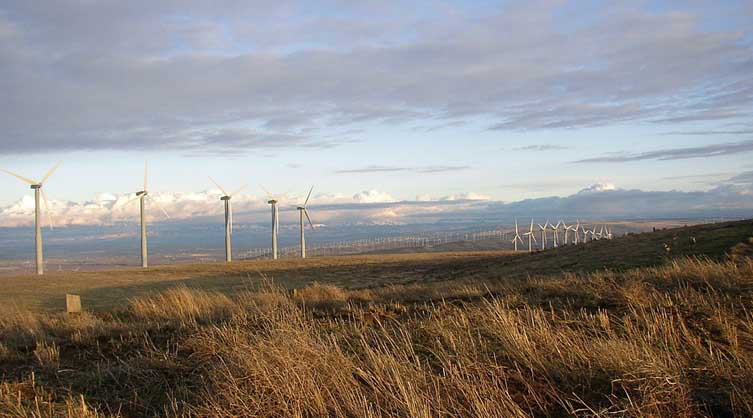The need to accelerate sustainable energy transition
By EPR Magazine Editorial October 11, 2022 7:37 pm IST
By EPR Magazine Editorial October 11, 2022 7:37 pm IST

In the recently held ministerial meeting of the U.S.-India Strategic Clean Energy Partnership (SCEP), U.S. Energy Secretary Jennifer Granholm and Indian Minister of Petroleum and Natural Gas Hardeep S. Puri underscored the critical importance of bilateral clean energy engagement to strengthen energy security and to accelerate clean, secure, and just energy transition.
Amidst volatility in global energy markets, continuing recovery from the COVID-19 pandemic, and increasingly frequent climate-related challenges, the United States and India reiterated their commitment to accelerating a just and sustainable energy transition. As climate and clean energy leaders, the United States and India share a common vision to deploy clean energy at scale during this critical decade to reduce emissions and achieve climate change mitigation goals, taking into account different national circumstances. Through regular consultations on global energy markets, efforts to strengthen collective energy security, and deepening technical engagement to support economy-wide decarbonisation, the two countries are proactively addressing the multiple crises that the world faces through the U.S.-India Strategic Clean Energy Partnership.
During the engagements, the two ministers reviewed progress across the entire spectrum of the energy sector partnership. They noted with appreciation the tremendous increase in bilateral energy trade achieved over the last few years. They also welcomed the increased clean energy collaboration between stakeholders of both countries which is facilitating expanded clean energy investment, including in emerging technologies.
The ministers also underscored the importance of ensuring reliable energy supplies to ensure balanced energy markets, including India’s support for the U.S. initiative to release crude oil from the strategic petroleum reserves, and the importance of diversifying to clean energy sources.
The ministers stressed that climate and clean energy collaboration should promote energy access, affordability, energy justice, while supporting sustainable economic growth and just energy transitions. The ministers also recognised that ambitious national climate and clean energy goals require concerted action and implementation at all levels of government to ensure their viability and sustainability. Capacity building and exchanging best practices including with all stakeholders were also highlighted as critical components to achieving the countries’ climate and clean energy ambitions.
India and the United States discussed progress on continued efforts to advance emerging fuels and technologies and electrification and decarbonisation of end use sectors. The discussions covered hard-to-abate sectors, and the ministers were informed about various initiatives, including joint research and development on smart grids and energy storage and new collaboration on carbon capture, utilisation and storage (CCUS) technologies, and the potential to explore collaboration on other novel technologies under the U.S.-India Partnership to Advance Clean Energy-Research (PACE-R).
The ministers noted the importance of facilitating increased energy investments to ensure sustainable, affordable, reliable, resilient and cleaner energy systems.
Enhanced bilateral efforts include:
The ministers also reiterated the importance of private sector engagement to facilitate investment, inform policy, and accelerate technology deployment. To that end, the United States and India continue to convene public-private tasks forces on hydrogen and biofuels, and announced the launch of a new energy storage task force to support large-scale integration of renewable energy needed to support the clean energy transition. The ministers welcomed collaboration between Indian and U.S. companies through a memorandum of understanding to deploy methane abatement technologies in India’s city gas distribution sector under the low emissions gas task force to help reduce emissions in the oil and gas sector.
Agencies from across the U.S. and Indian governments demonstrated a number of accomplishments across the five technical pillars of cooperation on, power & energy efficiency, renewable energy, responsible oil & gas, sustainable growth, and emerging fuel and technologies.
The ministers welcomed expanded efforts under the U.S.-India Strategic Clean Energy Partnership to support a just energy transition to meet today’s unprecedented energy security and climate and energy challenges.
We use cookies to personalize your experience. By continuing to visit this website you agree to our Terms & Conditions, Privacy Policy and Cookie Policy.